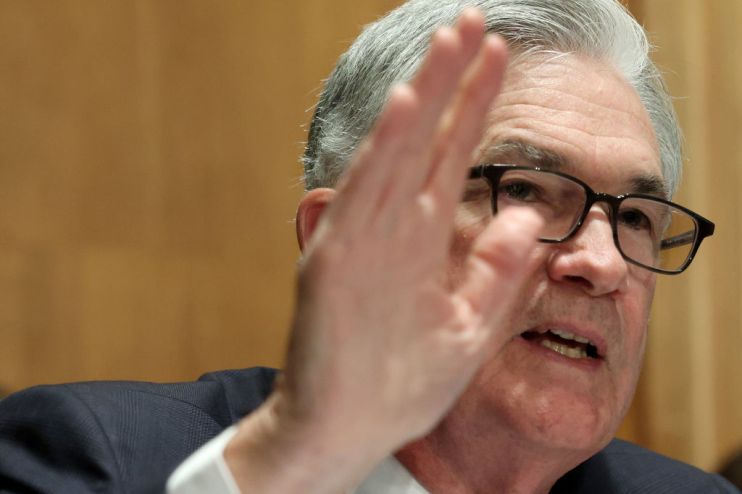Fed says US economy has ‘made progress’ but holds rates at near-zero

The Federal Reserve deems the US economy to be “strengthening” despite rising coronavirus cases, but not so much that it feels ready to wind down its economic support policies.
In a new policy statement released on Wednesday following its two day meeting, the US central bank said: “With progress on vaccinations and strong policy support, indicators of economic activity and employment have continued to strengthen.”
The outcome of the Federal Open Market Committee meeting on Wednesday was to maintain its benchmark interest rate between 0 per cent and 0.25 per cent, it said in a statement.
“The economy has made progress” toward the conditions that the Fed requires before it begins to taper its $120bn bond purchases, but it would not do so until the labour market had made “substantial further progress.” The policy decision was unanimous.
Its wording on inflation – that it remains the result of “transitory factors” – remained unchanged from its last policy decision in June.
The Fed also said the “committee will continue to assess progress in coming meetings,” hinting that tapering could still be a while away.
“I’d say we have some ground to cover on the labor market side,” Fed chair Jerome Powell said in a press conference following the statement release. “I think we’re some way away from having had substantial further progress toward the maximum employment goal.”
The tentative update comes against a mixed economic backdrop, as spiralling inflation preoccupies Wall Street and worker shortages feed into predictions that inflation will remain higher in the long run if businesses have to increase wages.
At the same time, the rapid surge in Covid infections is giving rise to fears about economic recovery.
Sitting on their hands
The Fed “like where the economy is heading” and “continue to sit on their hands for just a while longer yet,” said Hinesh Patel, portfolio manager at Quilter Investors.
“A time will come when the market will need to see a clearer plan for the reduction in quantitative easing. Inflation is a beast that can quickly get out of control and if the Fed has to act harsher than it would have done if it did so previously, volatility would ensue,” Patel said.
The lack of formal policy change was “as expected,” said Richard Flynn, UK Director at Charles Schwab, who said the lows of 2020 acted as a boon to stocks as investors began to price in a turnaround.
“But today, strong data may suggest tighter policy is forthcoming. This will likely begin to weigh on stocks and investors will likely begin to expect an eventual downturn,” Flynn said.
“The U.S. economy can withstand tighter monetary policy and continue to produce solid growth after achieving “escape velocity”. So, it may no longer need the boost from the Fed’s extraordinary stimulus.
“But, in the near-term, it is possible that good economic data, especially on jobs, could be interpreted as bad news for the U.S. stock market if it prompts the Fed to unwind earlier and faster,” Flynn added.
But Fed chair Jerome Powell seemed optimistic about the vaccine rollout and business adaptation to the pandemic lessening the impact of successive Covid variants.
“What’s happened is: First of all, people are vaccinated, they’re going on with their lives. Secondly, we’ve kind-of learned to live with it. A lot of industries have kind-of improvised their way around it. Particularly, for example, buying a new home,” Powell said.
“It’s seems like we’ve learned to handle this. We’d like to get back to the way things were, and I hope to some extent we will over time.”